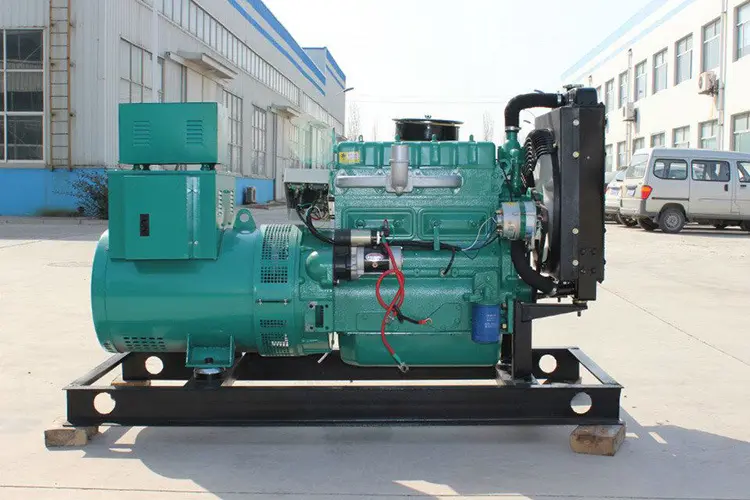Introduction
In times of natural disasters such as hurricanes, earthquakes, floods, and wildfires, the need for reliable power sources is critical for emergency response efforts. Diesel generators have long been a staple in disaster relief operations, providing a dependable source of electricity to power essential equipment and facilities when the main grid is down. In this article, we will explore the importance of diesel generators in disaster relief, their key features and benefits, their deployment strategies, and the challenges and advancements in the field.
Importance of Diesel Generators in Disaster Relief
When disaster strikes, infrastructure damage often leads to widespread power outages, leaving communities without electricity for days or even weeks. In such situations, diesel generators play a crucial role in providing temporary power for emergency services, shelters, hospitals, communication networks, and other critical facilities. These generators are designed to deliver reliable and continuous power supply, even in the most challenging conditions.
Diesel generators are particularly well-suited for disaster relief operations due to their robustness, efficiency, and fuel availability. Unlike gasoline generators, diesel generators are more fuel-efficient and have a longer runtime, making them ideal for prolonged emergencies. Diesel fuel is also less volatile and safer to store, reducing the risk of accidents in high-stress situations. Additionally, diesel is readily available in most regions, ensuring a stable fuel supply during relief efforts.
Key Features and Benefits of Diesel Generators
1. Reliability: Diesel generators are known for their reliability and durability, making them the go-to choice for critical applications. They can operate continuously for extended periods without overheating or malfunctioning, ensuring uninterrupted power supply during disasters.
2. Fuel Efficiency: Diesel engines are more fuel-efficient than gasoline engines, providing longer runtimes and reducing the frequency of refueling. This efficiency is crucial in disaster scenarios where fuel availability may be limited.

3. Power Output: Diesel generators are capable of delivering high power output, making them suitable for powering a wide range of equipment and facilities, from small appliances to large industrial machinery.
4. Easy Maintenance: Diesel generators are relatively easy to maintain and service, with fewer components prone to wear and tear. This simplifies maintenance tasks in the field, allowing for quick repairs and troubleshooting.
5. Portability: Many diesel generators are designed to be portable and compact, allowing for easy transportation to remote or hard-to-reach areas affected by disasters. This mobility is essential for rapid deployment and setup in emergency situations.
Deployment Strategies for Diesel Generators in Disaster Relief
Deploying diesel generators effectively in disaster relief operations requires careful planning and coordination. Here are some key strategies for deploying and utilizing these generators:
1. Needs Assessment: Before deploying diesel generators, it is essential to conduct a thorough needs assessment to determine the power requirements of the affected areas. This assessment should consider the critical facilities that need power, the duration of the outage, and the type of equipment to be powered.
2. Site Selection: Selecting appropriate sites for diesel generator placement is crucial for maximizing their effectiveness. Generators should be placed in secure locations away from flood-prone areas, with easy access for refueling and maintenance.
3. Fuel Management: Managing fuel supply is a critical aspect of diesel generator deployment. It is essential to ensure a continuous supply of diesel fuel to avoid interruptions in power generation. Establishing fuel storage and distribution protocols is key to maintaining operational readiness.
4. Maintenance and Monitoring: Regular maintenance and monitoring of diesel generators are essential to ensure their optimal performance during relief operations. Scheduled inspections, fuel quality checks, and component replacements should be carried out to prevent breakdowns.
5. Training and Capacity Building: Providing training to operators and maintenance staff on diesel generator operation and maintenance is essential for safe and efficient deployment. Building local capacity for generator operation can help mitigate risks and improve response times during emergencies.
Challenges and Advancements in Diesel Generator Technology for Disaster Relief
While diesel generators are a reliable source of power for disaster relief, they also face certain challenges and limitations. Some of the key challenges include:
1. Environmental Impact: Diesel generators emit greenhouse gases and air pollutants, contributing to environmental degradation and public health concerns. Addressing these environmental impacts through emission control technologies and alternative fuels is a priority for sustainable disaster relief operations.
2. Fuel Supply Chain Vulnerability: Dependence on diesel fuel for generators poses a risk in disaster scenarios where fuel supply chains may be disrupted. Developing alternative fuel storage and distribution systems, such as renewable energy sources or hybrid solutions, can enhance the resilience of relief operations.
3. Noise and Emissions Regulations: Diesel generators are often subject to noise and emissions regulations that restrict their use in urban areas or sensitive environments. Compliance with these regulations can pose challenges for deploying generators in densely populated disaster-affected areas.
In response to these challenges, advancements in diesel generator technology are being made to improve their efficiency, reliability, and environmental performance. Some of the notable advancements include:
1. Hybrid Systems: Integrating diesel generators with renewable energy sources such as solar panels or wind turbines can reduce fuel consumption and emissions while providing a more sustainable power solution for disaster relief.
2. 75kw diesel generator for small-scale operations and Control Systems: IoT-enabled monitoring and control systems allow for real-time monitoring of generator performance, fuel consumption, and maintenance needs. This technology enables remote operation and predictive maintenance, enhancing the reliability and efficiency of diesel generators.
3. Emission Control Technologies: Advanced emission control technologies, such as diesel particulate filters and selective catalytic reduction systems, help reduce the environmental impact of diesel generators by minimizing emissions of harmful pollutants.
Conclusion
Diesel generators play a vital role in disaster relief operations by providing reliable power supply to critical facilities and services during emergencies. Their robustness, efficiency, and fuel availability make them indispensable assets for first responders and relief organizations working in disaster-affected areas. By implementing effective deployment strategies, addressing key challenges, and embracing technological advancements, diesel generators can continue to serve as lifelines for communities in need of power during times of crisis.
